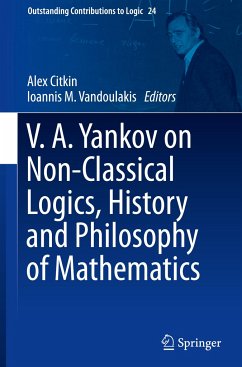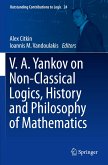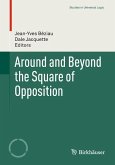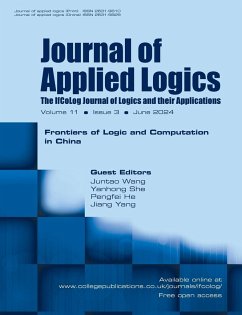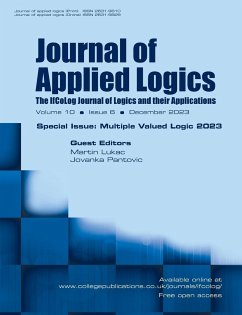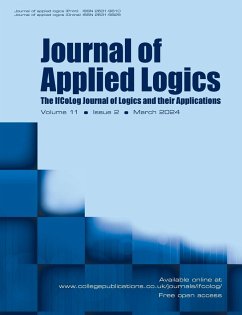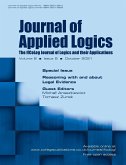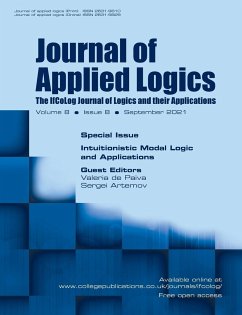This book is dedicated to V.A. Yankov's seminal contributions to the theory of propositional logics. His papers, published in the 1960s, are highly cited even today. The Yankov characteristic formulas have become a very useful tool in propositional, modal and algebraic logic.
The papers contributed to this book provide the new results on different generalizations and applications of characteristic formulas in propositional, modal and algebraic logics. In particular, an exposition of Yankov's results and their applications in algebraic logic, the theory of admissible rules and refutation systems is included in the book. In addition, the reader can find the studies on splitting and join-splitting in intermediate propositional logics that are based on Yankov-type formulas which are closely related to canonical formulas, and the study of properties of predicate extensions of non-classical propositional logics.
The book also contains an exposition of Yankov's revolutionary approach to constructive proof theory. The editors also include Yankov's contributions to history and philosophy of mathematics and foundations of mathematics, as well as an examination of his original interpretation of history of Greek philosophy and mathematics.
The papers contributed to this book provide the new results on different generalizations and applications of characteristic formulas in propositional, modal and algebraic logics. In particular, an exposition of Yankov's results and their applications in algebraic logic, the theory of admissible rules and refutation systems is included in the book. In addition, the reader can find the studies on splitting and join-splitting in intermediate propositional logics that are based on Yankov-type formulas which are closely related to canonical formulas, and the study of properties of predicate extensions of non-classical propositional logics.
The book also contains an exposition of Yankov's revolutionary approach to constructive proof theory. The editors also include Yankov's contributions to history and philosophy of mathematics and foundations of mathematics, as well as an examination of his original interpretation of history of Greek philosophy and mathematics.

